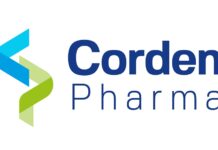Decision Resources, one of the world’s leading research and advisory firms focusing on pharmaceutical and healthcare issues, finds through examination of U.S. patient-level claims data, thatantiepileptic drugs (AED) are the most commonly prescribed drug class among newly diagnosed bipolar disorder patients across the first three lines of therapy.
“Leading agents within the AED class are effective at treating the range of bipolar symptoms: lamotrigine (GlaxoSmithKline’s Lamictal, generics) is a popular first-line option to treat bipolar depression—and offers tolerability advantages over lithium—while valproic acid and its derivatives (Abbott/Sanofi’s Depakote, Abbott’s Depakote ER, Tatumi Kagaku’s Sanoten, generics) are effective options to treat patients experiencing acute manic episodes,” said Director Nicole Westphal, Ph.D.
According to Treatment Algorithms in Bipolar Disorder, atypical antipsychotics are also widely used to treat newly diagnosed bipolar disorder patients, with Bristol-Myers Squibb’s Abilify leading other branded agents in this class across the first three lines of therapy. Abilify is the most commonly prescribed individual atypical antipsychotic in the second and third line of therapy.
In recently treated bipolar disorder patients, atypical antipsychotics captured more than a third of patient share in the fourth quarter of 2011. Abilify and AstraZeneca’s Seroquel claimed nearly identical patient share in this group. However, only approximately 16 percent of drug switches to Abilify came from patients taking other atypical antipsychotics, supporting Abilify’s position as an early line choice among the atypical class of agents. Recently treated patients are defined as patients treated for bipolar disorder in the fourth quarter of 2011; the analysis found in Treatment Algorithms in Bipolar Disorder reviews historical therapies used in their treatment.
“Abilify is not indicated to treat bipolar depression like Seroquel is, yet it has been able to effectively compete with Seroquel in the bipolar disorder market, owing in part to its favorable side effect profile,” said Dr. Westphal. “In addition, Abilify’s separate approval for the adjunctive treatment of depressive patients has likely had a positive effect on the agent’s use in treating bipolar depression patients, despite this being a distinct disease population.”
The analysis, which examined U.S. longitudinal patient-level claims for more than 95,000 diagnosed, drug-treated bipolar disorder patients, is part of the Treatment Algorithms Insight series, which provides exceptional insight into physicians’ prescribing trends, from diagnosis through multiple courses of treatment, for a specific disease. Quarterly data analysis reveals progression rates of patients through each line of therapy, the share each brand commands by line of therapy and add-versus-switch patterns to key brands.
About Decision Resources
Decision Resources (www.decisionresources.com) is a world leader in market research publications, advisory services and consulting designed to help clients shape strategy, allocate resources and master their chosen markets. Decision Resources is a Decision Resources Group company.
About Decision Resources Group
Decision Resources Group is a cohesive portfolio of companies that offers best-in-class, high-value information and insights on important sectors of the healthcare industry. Clients rely on this analysis and data to make informed decisions. Please visit Decision Resources Group at www.DecisionResourcesGroup.com.




















